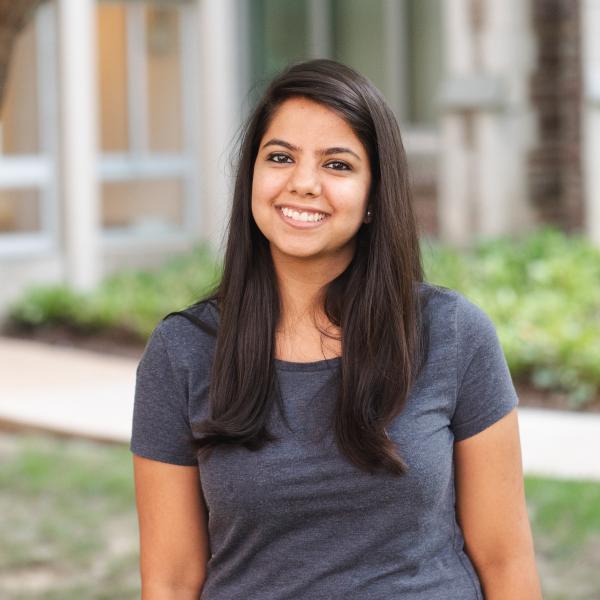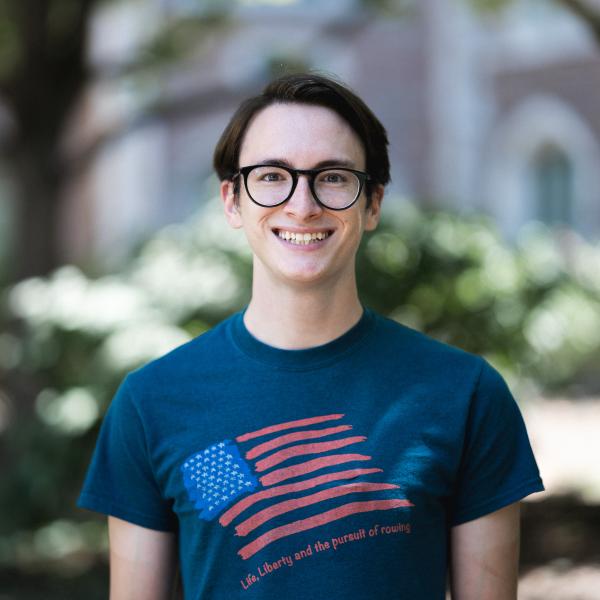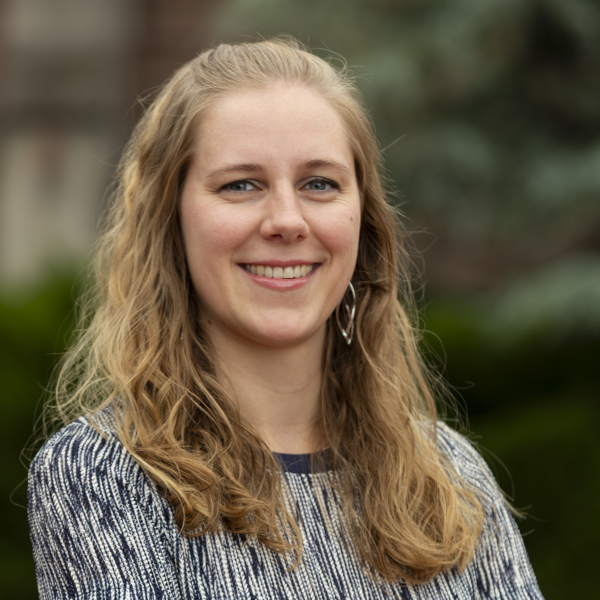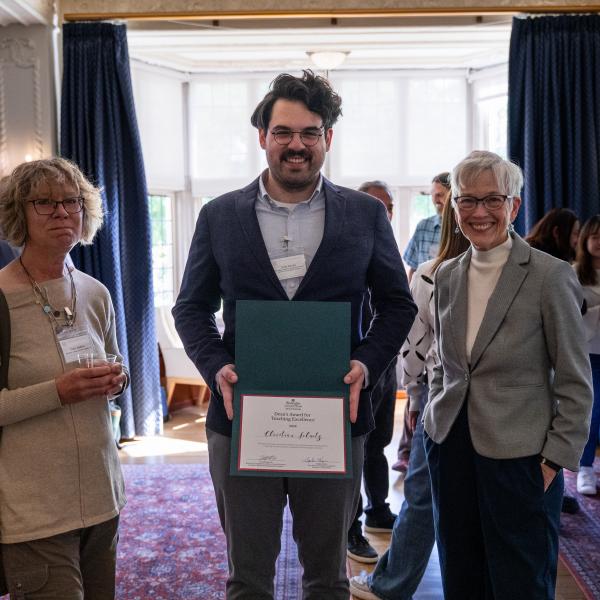Grad student Takuya Okawa selected to participate in Fermilab fellowship
As the academic year winds down at Washington University in St. Louis, doctoral student Takuya Okawa of the Department of Physics has been selected for a research fellowship at Fermilab. Okawa is a graduate student under the advisement of Associate Professors of Physics Francesc Ferrer and Bhupal Dev, and often collaborates with Professor of Physics Jim Buckley and Assistant Professor of Physics Alex Chen. His research centers on the interactions of dark matter with the rest of the universe and the effect this has on the full scope of cosmology.
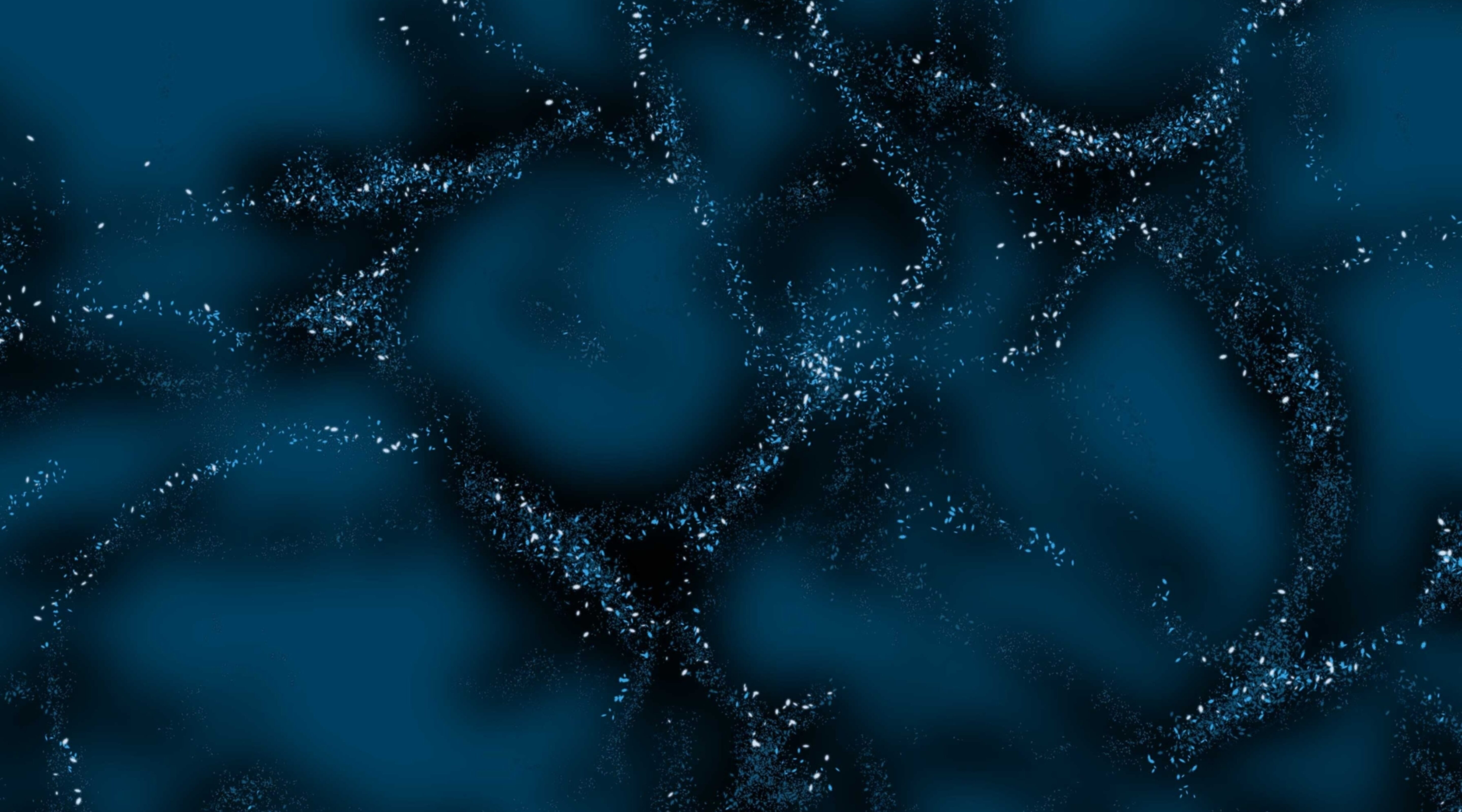
Dark matter is a mysterious interstellar material which we can detect through its gravitational effects on the universe around us, but which is otherwise indetectable to most of our scientific measurements. It also makes up approximately twenty-seven percent of the material in our universe, which explains why the high level of difficulty in detecting it has been a major point of study since it was first theorized by Swiss astronomer Fritz Zwicky during the 1930s. Zwicky first detected anomalies in the motion of galaxies in the Coma Cluster which indicated that extra gravitational force was acting on them.
Okawa is interested in a specific type of dark matter called an axion, which may emit radio waves, thereby making it more accessible for scientists to study. Some of the projects he's been involved in include studies of Gamma rays formed by the spontaneous decay of heavy axions produced in stars and the characteristics of radio waves produced by axion-photon conversion in the pulsar magnetosphere.
“Our goal is understanding how our universe behaves,” he said of his work. “To understand that, we must construct a theory that includes dark matter but which can describe how things move in space and how they behave as a function of time. What we know is that dark matter doesn't interact significantly with our ordinary matter. My work involves studying how we can detect this material.”
Okawa's fellowship, which is funded by the Universities Research Association, will take place at the Department of Energy’s Fermilab in Batavia, Illinois from July through December. His research will be completed in collaboration with Asher Berlin, Dan Hooper, and Gordan Krnjaic of the Lab's Theory Division. Alongside this team of experts, he will have access to the Lab’s resources, which may allow him to further pull back the curtain on how dark matter affects the universe around us.

